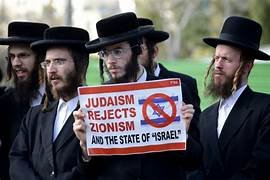The topic of ultra-Orthodox conscription has been a source of contention and division in Israeli politics for years, with consequences that reach beyond military duty. As the country grapples with the complexities of coalition governance, the debate over conscription threatens to further strain an already fragile political landscape.
At the heart of the issue is the longstanding exemption granted to ultra-Orthodox Jews from mandatory military service, a policy rooted in historical agreements dating back to the early years of the state. Under these arrangements, ultra-Orthodox men were permitted to pursue religious studies full-time instead of serving in the Israel Defense Forces (IDF), a practice known as yeshiva deferment.
However, the exemption has increasingly come under scrutiny in recent years, with critics arguing that it undermines the principle of equality and imposes an unfair burden on other sectors of Israeli society. Secular and mainstream Israelis have long called for the integration of ultra-Orthodox men into the military, arguing that military service is a fundamental aspect of citizenship and a means of fostering social cohesion.
The issue has taken on added significance in the context of Israel’s coalition politics, where parties representing diverse interests and constituencies must navigate delicate balancing acts to maintain power. The inclusion of ultra-Orthodox parties in coalition governments has often required concessions on issues such as conscription, leading to tensions within the coalition and criticism from secular and centrist parties.
The current government, led by Prime Minister Naftali Bennett’s coalition of right-wing, centrist, and Arab parties, faces challenges in addressing the issue of ultra-Orthodox conscription. While Bennett’s Yamina party has traditionally been aligned with the religious right, his coalition partners include secular and centrist parties that are more inclined to push for reforms to the conscription system.
Moreover, the ultra-Orthodox parties, which wield significant influence in Israeli politics, have made clear their opposition to any attempts to compel their constituents to serve in the military. They argue that military service is incompatible with their religious beliefs and way of life, and they have traditionally sought to preserve the exemption through political maneuvering and coalition negotiations.
As the government grapples with competing demands and pressures from various quarters, the issue of ultra-Orthodox conscription threatens to become a flashpoint that could destabilize the fragile coalition. Any attempt to amend the conscription law or curtail the exemption granted to ultra-Orthodox men is likely to face fierce resistance from ultra-Orthodox parties, potentially leading to coalition fractures and even early elections.
Furthermore, the issue of conscription intersects with broader social and economic challenges facing Israel, including issues of integration, inequality, and national identity. The debate over conscription reflects deeper divisions within Israeli society over issues of religion, statehood, and the nature of citizenship, highlighting the complex and multifaceted nature of the country’s political landscape.
Ultimately, the resolution of the ultra-Orthodox conscription issue will require delicate negotiations, compromise, and a willingness to confront entrenched interests and ideologies. The government must strike a balance between respecting the rights and beliefs of the ultra-Orthodox community and upholding the principles of equality, citizenship, and national service.
As Israel traverses the intricacies of coalition governance and wrestles with urgent social and political dilemmas, the question of ultra-Orthodox conscription emerges as a significant concern that could jeopardize stability and unity. The government’s approach to this issue will not only define the course of Israeli politics but also carry significant ramifications for the nation’s societal cohesion and identity.









